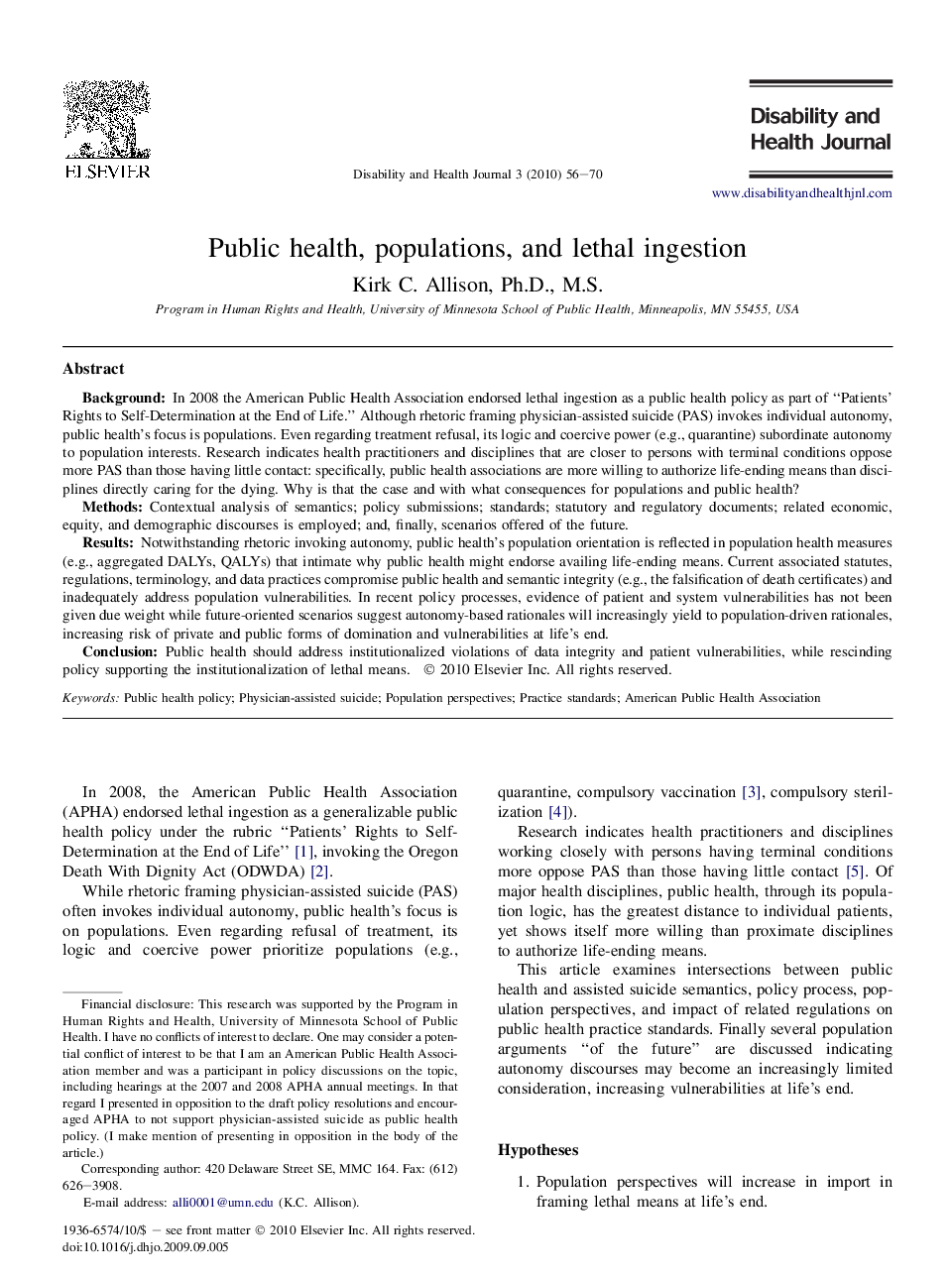| کد مقاله | کد نشریه | سال انتشار | مقاله انگلیسی | نسخه تمام متن |
|---|---|---|---|---|
| 4197473 | 1278922 | 2010 | 15 صفحه PDF | دانلود رایگان |

BackgroundIn 2008 the American Public Health Association endorsed lethal ingestion as a public health policy as part of “Patients' Rights to Self-Determination at the End of Life.” Although rhetoric framing physician-assisted suicide (PAS) invokes individual autonomy, public health's focus is populations. Even regarding treatment refusal, its logic and coercive power (e.g., quarantine) subordinate autonomy to population interests. Research indicates health practitioners and disciplines that are closer to persons with terminal conditions oppose more PAS than those having little contact: specifically, public health associations are more willing to authorize life-ending means than disciplines directly caring for the dying. Why is that the case and with what consequences for populations and public health?MethodsContextual analysis of semantics; policy submissions; standards; statutory and regulatory documents; related economic, equity, and demographic discourses is employed; and, finally, scenarios offered of the future.ResultsNotwithstanding rhetoric invoking autonomy, public health's population orientation is reflected in population health measures (e.g., aggregated DALYs, QALYs) that intimate why public health might endorse availing life-ending means. Current associated statutes, regulations, terminology, and data practices compromise public health and semantic integrity (e.g., the falsification of death certificates) and inadequately address population vulnerabilities. In recent policy processes, evidence of patient and system vulnerabilities has not been given due weight while future-oriented scenarios suggest autonomy-based rationales will increasingly yield to population-driven rationales, increasing risk of private and public forms of domination and vulnerabilities at life's end.ConclusionPublic health should address institutionalized violations of data integrity and patient vulnerabilities, while rescinding policy supporting the institutionalization of lethal means.
Journal: Disability and Health Journal - Volume 3, Issue 1, January 2010, Pages 56–70